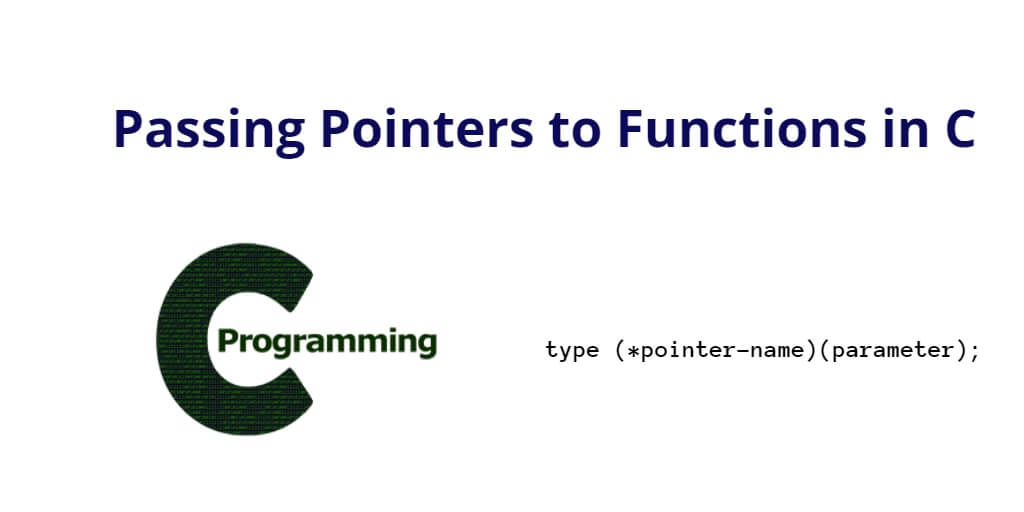Passing pointers to functions in C; Through this tutorial, you will learn how to pass pointers as arguments to functions in c programming with the help of examples.
Pointers as Function Argument in C
In C programming, Pointer as a function parameter is used to stores addresses of arguments in memory, passed during the function call. This is also known as call by reference. When a function is called by reference any change made to the reference variable will affect the original variable.
Note that – In C programming, it is also possible to pass the address of a variable to the function instead of the variable value.
It is possible to declare a pointer pointing to a function as an argument; will be declared as follows:
type (*pointer-name)(parameter);
Similarly, If a function wants to accept an address of two integer variable then the function declaration will be,
return_type function_name(int*,int*);
Here is an example :
int (*sum)(); //legal declaration of pointer to function int *sum(); //This is not a declaration of pointer to function
A function pointer can point to a specific function when it is assigned the name of that function.
int sum(int, int); int (*s)(int, int); s = sum;
Here s is a pointer to a function sum. Now sum can be called using function pointer s along with providing the required argument values.
s (10, 20);
Example 1 – C Program To Swap Two Numbers using Pointers
#include <stdio.h>
void swap(int *n1, int *n2);
int main()
{
int num1 = 15, num2 = 20;
// address of num1 and num2 is passed
swap( &num1, &num2);
printf("num1 = %d\n", num1);
printf("num2 = %d", num2);
return 0;
}
void swap(int* n1, int* n2)
{
int temp;
temp = *n1;
*n1 = *n2;
*n2 = temp;
}
The output of the above c program will be:
num1 = 20 num2 = 15
Explanation of the above c program; as follows:
- Passing the address of num1 and num2 variables into
swap()function using thisswap(&num1, &num2); - Pointers n1 and n2 accept these arguments in the function definition.
void swap(int* n1, int* n2) {… ..}
- When *n1 and *n2 are changed inside the
swap()function, num1 and num2 inside the main() function are also changed. - Inside the
swap()function,*n1and*n2swapped. Hence, num1 and num2 are also swapped. - Notice that
swap()is not returning anything; its return type isvoid.
Example 2 – Passing Pointers to Functions
#include <stdio.h>
int sum(int x, int y)
{
return x+y;
}
int main( )
{
int (*fp)(int, int);
fp = sum;
int s = fp(10, 15);
printf("Sum is %d", s);
return 0;
}
The output of the above c program will be:
25
